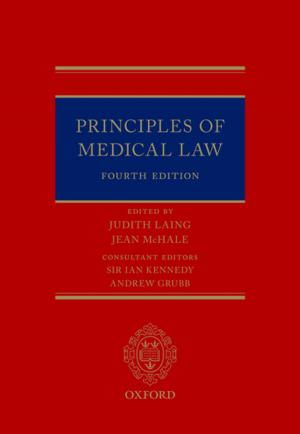The Oxford Handbook of Inflection
Nonfiction, Reference & Language, Language Arts, Grammar, Linguistics| Author: | ISBN: | 9780191664946 | |
| Publisher: | OUP Oxford | Publication: | July 30, 2015 |
| Imprint: | OUP Oxford | Language: | English |
| Author: | |
| ISBN: | 9780191664946 |
| Publisher: | OUP Oxford |
| Publication: | July 30, 2015 |
| Imprint: | OUP Oxford |
| Language: | English |
This is the latest addition to a group of handbooks covering the field of morphology, alongside The Oxford Handbook of Case (2008), The Oxford Handbook of Compounding (2009), and The Oxford Handbook of Derivational Morphology (2014). It provides a comprehensive state-of-the-art overview of work on inflection - the expression of grammatical information through changes in word forms. The volume's 24 chapters are written by experts in the field from a variety of theoretical backgrounds, with examples drawn from a wide range of languages. The first part of the handbook covers the fundamental building blocks of inflectional form and content: morphemes, features, and means of exponence. Part 2 focuses on what is arguably the most characteristic property of inflectional systems, paradigmatic structure, and the non-trivial nature of the mapping between function and form. The third part deals with change and variation over time, and the fourth part covers computational issues from a theoretical and practical standpoint. Part 5 addresses psycholinguistic questions relating to language acquisition and neurocognitive disorders. The final part is devoted to sketches of individual inflectional systems, illustrating a range of typological possibilities across a genetically diverse set of languages from Africa, Asia and the Pacific, Australia, Europe, and South America.
This is the latest addition to a group of handbooks covering the field of morphology, alongside The Oxford Handbook of Case (2008), The Oxford Handbook of Compounding (2009), and The Oxford Handbook of Derivational Morphology (2014). It provides a comprehensive state-of-the-art overview of work on inflection - the expression of grammatical information through changes in word forms. The volume's 24 chapters are written by experts in the field from a variety of theoretical backgrounds, with examples drawn from a wide range of languages. The first part of the handbook covers the fundamental building blocks of inflectional form and content: morphemes, features, and means of exponence. Part 2 focuses on what is arguably the most characteristic property of inflectional systems, paradigmatic structure, and the non-trivial nature of the mapping between function and form. The third part deals with change and variation over time, and the fourth part covers computational issues from a theoretical and practical standpoint. Part 5 addresses psycholinguistic questions relating to language acquisition and neurocognitive disorders. The final part is devoted to sketches of individual inflectional systems, illustrating a range of typological possibilities across a genetically diverse set of languages from Africa, Asia and the Pacific, Australia, Europe, and South America.















